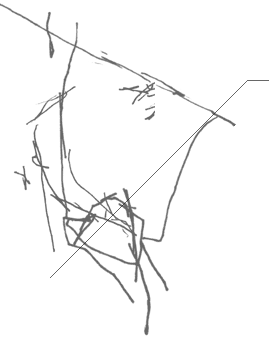Sunday, March 1, 2026 |
||

|

by Michael Goldberg
Monday, February 11, 2002
John Hiatt Makes Classic Rock Sound Good
A new Brit-pop quartet debuts with an album worth hearing
|
|||
|
A couple of years ago the singer/songwriter/guitarist John Hiatt recorded Crossing Muddy Waters, an acoustic album for the revived Vanguard label. It was both a career high for Hiatt and a really good album, period. That album was so good, and such a departure from the so-so rock albums Hiatt had been releasing following 1987's amazing Bring the Family, that the critical neglect of its follow-up, an excellent rock album called The Tiki Bar Is Open, is not so surprising. So I'm here to inform you that, in fact, Hiatt's most recent album (also on Vanguard) merits your attention.
When he was younger, Hiatt was a wild one — like a lot of folks who came of age in the '60s, he drank and indulged in various drugs, and at times his life was a mess. Hiatt no longer drinks (hasn't in 17 years, he sings in the title track), but that doesn't mean he can't draw on his experiences from those darker days. As a man who, in his late 40s, has lived a lot of life, John Hiatt brings plenty of wisdom to his writing. He also understands how to actually say something in a song in a way that's both natural and artistic. One of the best songs here, opener "Everybody Went Low," rocks along in classic Hiatt style (recalling some of the songs off his early and acclaimed album, Slug Line). It's about bottoming out, reaching the depths of self-destructive behavior where your only choices are to die or to live (by making some major changes). "There's no place further down," Hiatt sings. "Turn it off or turn around." Hiatt is a musical traditionalist, which means that he draws on classic rock, blues, soul and country in the manner that rockers in the '60s and '70s did. His music is pre-hip-hop, pre-electronic, pre-alt rock. If I played you this album and said it was a lost gem from 1971, you'd believe me. That isn't to say that it's some retro exercise; what I'm saying is that there's nothing trendy about Hiatt's music. He's been recording albums for 28 years now; at age 50, doing anything trendy would seem disingenuous and, well, silly. What you want from John Hiatt is John Hiatt in good voice, singing a fresh collection of new songs John Hiatt-style. With The Tiki Bar Is Open, that's exactly what you get. Sailing Into The Stars Once you've given it a few listens, it makes perfect sense that the Brit-pop quartet Starsailor titled their exceptional debut, Love Is Here (Capitol), after a song they placed near the end of the album. "Love Is Here" is the centerpiece, a standout that captures the best qualities of this Radiohead-influenced band. OK, perhaps that's a bit harsh. If there were no Radiohead, there could still be a Starsailor; like many Brit-pop combos, they seem to draw on '60s and early-'70s British and American influences. But there is a Radiohead, and so it is beneath their shadow that bands such as Starsailor (and Coldplay and Travis) now stand. Starsailor (the name is borrowed from the titled of a Tim Buckley album) are a traditional pop-rock group; the version of Radiohead they slightly resemble is the pre-OK Computer Radiohead, for there is nothing weird or electronic about Love Is Here. The album contains 11 pop songs three to four minutes long, plus a hidden track (I wish the hidden track concept would be retired; it's been done and done and done...). The group has come up with addictive melodies, the arrangements make sense, and the music is well played. What makes Starsailor worth paying attention to, however, is singer James Walsh, who has a distinctive and soulful voice that doesn't remind me of anyone (well, there is the slightest hint of Robert Plant, and Bono as well). He can really sing, and he can make you feel that what he's singing matters — really matters. The problem (yes, there's a problem) is that some of the lyrics Walsh is singing are a bit daffy, while others are trite (for instance, he sings to a lover, "Let's watch the clock until the morning sun comes out"). Which brings us back to the title track. It begins with the pulse of alternating notes played on a keyboard, which is joined by a simple rhythm and a piano chord. As Walsh begins to sing, you hear the gentle strum of an acoustic guitar. "If you could see the lover in me," he begins. "And we could join our hands together/ You could see how good it could be/ We'll sing these stupid songs forever." So far so good. The first three lines are delivered with such sincerity, and play so well against the music, that you just fall into the song. And with that fourth line he manages to keep the mood yet allude to Paul McCartney's "Silly Love Songs." He continues: "Can you feel it?/ Love is here?/ It has never been so clear." All is still well. But then he sings, "You can't love what you have not/ So hold on to what you've got." What's this? A rewrite of Stephen Stills' inane free-love anthem "Love the One You're With"? Bottom line: if you love Brit-pop and can ignore some occasionally questionable lyrics, take a chance on Love Is Here. |
||||